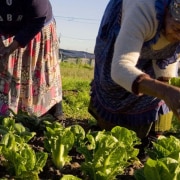|
Getting your Trinity Audio player ready...
|
By Melusi Ncala and Mashudu Masutha
First published in The Star
The recent legislative amendments throughout the South African land reform space have also failed to full the constitutional obligation to provide adequate housing and protection of ownership rights. This has caused serious discontent among the destitute in urban and periurban areas as well as the poor African rural communities that are simultaneously confronted with conflicting systems of governance — customary laws and contemporary South African constitutionalism.
Section 25 of the Constitution, which deals with the land question, was the last to be agreed upon by negotiators. It defines land reform as being in the ”public interest”, in a context where existing property rights are respected. But tension persists between individual freedom to hold property and the imperative to address historical injustices.
While recognising that communities were driven off their land, redress for past wrong has to be balanced with the need to provide security of tenure, maintain food security, promote economic growth and foster national reconciliation.
Many community members across the country have lost patience with the paternalistic approach of government departments and agencies responsible for human settlement, traditional leaders, commercial farmers, mining corporations, infrastructure developers and investors.
Lawmakers and administrators have assiduously courted the interests of the powerful at the expense of the rural and urban poor. They jeopardise the execution of land policies focused on redress and now, more than ever, contribute to under-delivering and weakening of any form of societal gains that may have existed regarding land reform.
There has been a total systems collapse of land administration in communal areas. The recently released book, Land in South Africa: Contested Meaning and Nation Formation by Mapungubwe Institute for Strategic Reflections confirmed that an estimated 31 million South Africans exercise land and property rights outside the formal registry system — the overwhelming majority live on communal lands and our laws do not make sufficient provision for them.
Yet the government insists on enacting laws that enhance corruption vulnerabilities by conflating the exercise of land rights with traditional authorities. The entrenchment of autocratic decision-making powers of state-recognised traditional leaders will legitimise the existing challenges of abuse of power in communities and significantly restrict active community engagement and autonomy.
In mine-affected communities, for example, members have observed how some traditional leaders claim they own and control all the mineral-rich land in the former homelands. Corruption Watch’s work in Bakwena ba Mogopa demonstrates the ripe corruption entry points that this exercise of sovereign power creates. Well-documented evidence illustrates that despite siphoning Bakwena ba Mogopa’s wealth from mining royalties and approving mineral rights awards without engagement with land rights holders, Kgosi Motheo has managed to effectively evade accountability by emphasising the customary laws which purportedly give him ownership and control of all lands.
The Constitutional Court’s 2018 case on Maledu and Others v ltereleng Bakgatla Mineral Resources (Pty) Limited and Another illustrates the ease with which mining houses were able to secure lucrative contracts directly with traditional leaders — without agreement from or consultation with the people whose land rights are directly affected by mining.
The unanimous ruling held that mining cannot trump the constitutionally enshrined right to tenure security, and that people whose informal land rights are directly affected must consent before their tenure rights can be undermined.
The judgment should have provided a clear step in the right direction for the development of laws that enhance tenure security specifically in communal land areas. Instead, it seems that the government’s land reform agenda is on a steady course to deny ownership and equality to the most vulnerable of our society.
Sadly, we have also observed obstinate, arrogant and corrupt public officials and businesspeople working in tandem to further disadvantage struggling communities. Corruption Watch’s body of work in respect to mining and land corruption has revealed that communities remain impoverished despite being owed billions of rand in royalties.
Where there was no consultation, in spite of vehement protests from civil society organisations and community structures, we witnessed the results of shoddy and nefarious policy planning and development of laws.
This fragmented consultative practice also affects the rezoning of areas. At face value the concept may appear sensible and pragmatic, especially if done under the guise of economic interests. But in some of the communities we have visited throughout the country, the outcomes have been dire. Where homes, community centres and places of worship once stood, there are now dump sites.
Ncala is a researcher and Masuthu is a legal researcher at Corruption Watch








